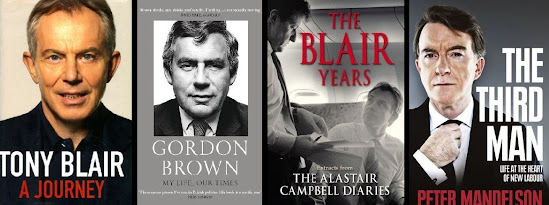Skullduggery (pronounced skuhl-duhg-uh-ree)
(1) Dishonorable
proceedings; mean dishonesty or trickery.
(2) An
instance of dishonest or deceitful behavior; trickery.
(3) Underhand
dealing.
(4) As sculdudrie or sculduddery, illicit fornication or something obscene respectively
(archaic Scots dialectial forms).
1856: A
creation in US English, it was a variant of earlier Scots sculdudrie or sculduddery
(both of obscure origin) which had been in use in colonial America. In Scotland, sculdudrie originally meant “adultery” or “illicit fornication” and,
with the unexplained spelling variation sculduddery,
by 1821 the meaning had extended to a general sense of “bawdry, an
obscenity". By from the late
nineteenth century, as skullduggery, in most of the English-speaking world, it
came to refer to dishonest or deceitful behaviour. Skulduggery is a noun; the noun plural is
skulduggeries or skullduggeries.
Skulduggery
is general underhanded behaviour or trickery, usually secret or devious. The
noun plural is skulduggeries or skullduggeries, though both are rarely used in
this form because the reference tends almost always to be to behaviour in a
general sense to begin with. Everybody
except Tony Blair seems to understand the profession of politics is a venal
business of lies and squalid skullduggery.
By the time of his valedictory address to the House of Commons, he’d
managed to forget noble causes like New Labour’s “ethical foreign policy” which
lasted only until it was explained to him that the UK’s armaments manufacturers
realized great profits by selling weapons to regimes with appalling human
rights records:
"Some may belittle politics but we who are engaged
in it know that it is where people stand tall.
Although I know that it has many harsh contentions, it is still the
arena that sets the heart beating a little faster. If it is, on occasions, the
place of low skullduggery, it is more often the place for the pursuit of noble
causes. I wish everyone, friend or foe, well. That is that... the end."
Hansard: Tony Blair’s last official words as prime-minister. Prime Minister's Questions, 27 June 2007.
In happier times, left to right: Tony Blair, Gordon Blair & Peter "Mandy" Mandelson (left) and the mean girls: Karen Smith (Amanda Seyfried, b 1985), Gretchen Wieners (Lacey Chabert, b 1982) & Regina George (Rachel McAdams, b 1978) (right).
In the early 1990s, detesting the Tory government, the press were fawning in their admiration and dubbed the New Labour trio "the three musketeers" but they came also to be called: "the good, the bad and the ugly, a collective moniker which may be generous to at least one of them. There is no truth in the rumor the threesome provided the template for the personalities of the "plastics" in Mean Girls (2004, right) although the idea is tempting because both photographs can be deconstructed thus: Tony & Karen (sincere, well meaning, a bit naïve); Gordon & Gretchen (insecure, desperately wanting to be liked) and Mandy & Regina (evil and manipulative).
There was plenty of low skulduggery during the New Labour government, led first by Tony Blair (b 1953; UK prime-minister 1997-2007) and later by Gordon Brown (b 1951; UK prime-minister 2007-2010) but to get a good flavour of it it’s necessary to read the memoirs by them both, then the diaries of Alastair Campbell (b 1957; Labour Party apparatchik) and finally Mandy's (b 1953; sometime (between the odd difficulty) member of the New Labour governments) The Third Man. The books are best read in that order because it makes easiest the reading between the lines to work out why each included certain things and left out other stuff (or spun it in some strange and inevitably self-serving way). It’s quite a fun process and actually necessary because while Campbell’s diaries are lively, the other three would otherwise be a hard slog. It’s now sometimes forgotten that in the distant past of the post-Thatcher, early 1990s, Tony Blair, Gordon Brown and Mandy were seen as modernizing reformers and in the early years of government actually behaved in a way which suggested that was true. It didn’t last however and Brown soon became consumed with jealously and eventually hatred for Blair who was denying him the premiership to which he thought himself entitled. Mandy meanwhile became resentful at being twice dismissed from office by Blair on grounds he thought unreasonable. From this ensued what was pretty dirty business.
A practical manual of low skulduggery in four volumes:
Tony
Blair, A Journey (2010), Random
House, pp 624, ISBN 978-0-09-192555-0
Gordon
Brown, My Life, Our Times (2017), The
Bodley Head, pp 512, ISBN 978-2-78-739526-6
Alastair
Campbell, The Blair Years (2007),
Random House, pp 816, ISBN 0-09-179629-6
Peter
Mandelson, The Third Man (2010),
Harper Press, pp 584, ISBN 978-0-00-739528-6


No comments:
Post a Comment